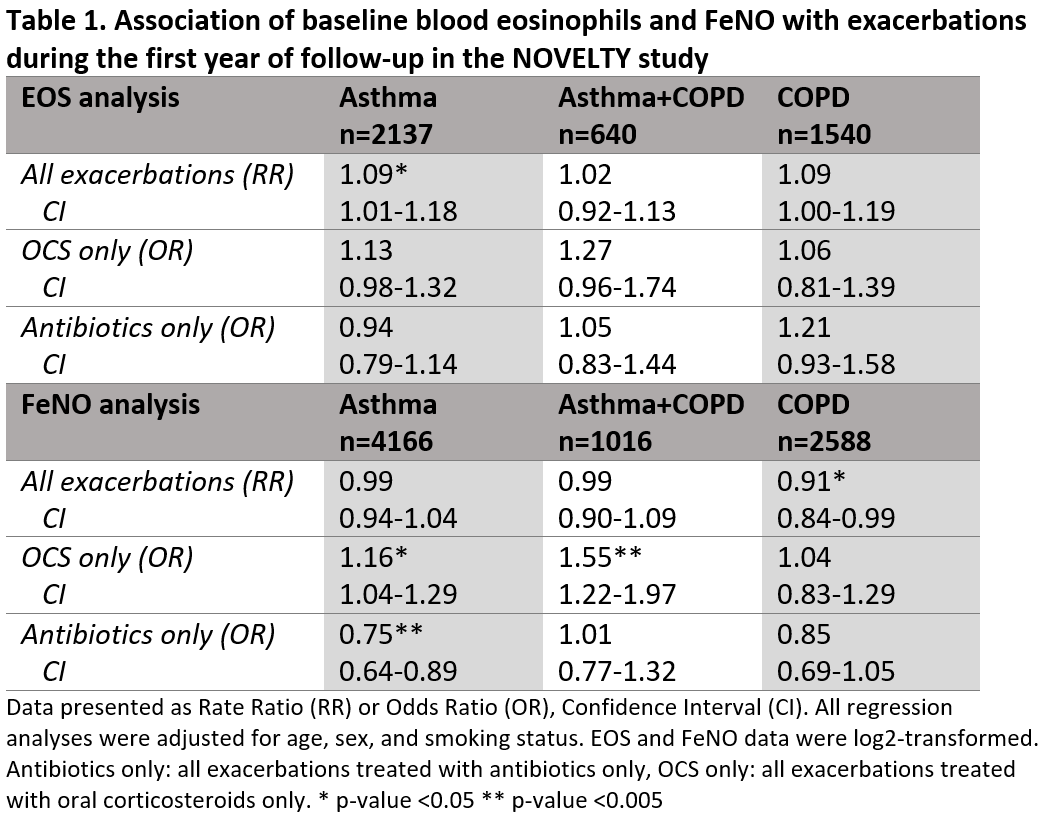Abstract
Background: Studies have shown that blood eosinophils (EOS) and exhaled nitric oxide (FeNO) are associated with exacerbation risk in patients with asthma and/or chronic obstructive pulmonary disease (COPD). We investigated the same associations among patients with asthma and/or COPD in a real-life setting.
Methods: The association between baseline EOS and FeNO and 1 yr prospective exacerbation data was explored in patients with asthma, asthma+COPD or COPD in the NOVELTY study (NCT02760329). Regression analyses were performed separately for EOS and FeNO, for each diagnosis, and for different exacerbation outcomes (i.e. All exacerbations; Antibiotics only treated exacerbations; Oral corticosteroids (OCS) only treated exacerbations).
Results: Increase in EOS was significantly associated with higher risk of all exacerbations in asthma (Table 1), but was not associated with antibiotics or OCS only treated exacerbations in asthma and/or COPD. By contrast, increase in FeNO was associated with lower risk of all exacerbations in COPD and with higher risk of OCS only treated exacerbations in asthma and asthma+COPD. In asthma, increase in FeNO was also associated with lower risk of antibiotics only treated exacerbations.
Conclusions: The role of EOS and FeNO as biomarkers for exacerbation risk is less clear in this real world dataset than in clinical trial populations.
